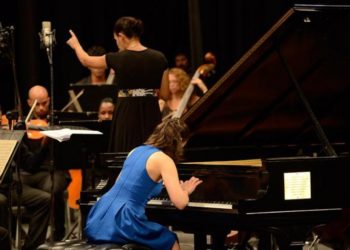Surrounded by the fragrance of sugar cane and fermented king grass, I can make out Yadisley’s unmistakable figure approaching the stalls. She comes from a cattle ranching family, is the daughter of a cowboy, and is an “Amazona,” or cowgirl. She earned her agrarian engineering degree a few years back and is a national barrel-racing champion. The smell of sweating animals, pasture, fodder and reins was the first perfume to envelop her and mark her destiny. At the age of 7, she rode horseback by herself for the first time and began her life as a cowgirl.
Her striking eyes, green as grass, are the first thing you notice about her. Her firm voice knows how to ask for what she wants, and her exacting tone and warmth could break in anyone or thing. Here on Rancho Alegre, we all admire her. “This piece of land, with its chickens and pigs and the mockingbird’s song, is not something you can find anywhere else. This is my Beautiful Little Cuba; nobody would ever convince me to leave.” That’s what she told us one day after coming home from one of her many trips. She has participated in a number of cowgirl competitions in Colombia. That was where she began bull-tailling, a technique that was not common in Cuba, much less among women. It is an art that needs practice, as Papito, Yadisley’s father, says: “Pulling down a bull is more about skill than strength.” Back from one of her trips, she heard the terrible news of the death of Lorena, the mare that had been with her since she was 3, carrying her in her first competition and winning many awards. “Sometimes animals are part of the family. They don’t feel like animals; they feel like part of you. You have a very close relationship, and you are constantly together, feeding them, working and training with them, bathing them, talking to them. The time comes when we are like a single person. We know what we want and what goes on between us when we are together. The horse and the athlete become a single unit, making it easier to win a tournament.” These words have stayed with me since the day I heard them. Now she and I are training together; this will be our first year as a duo.
For these rodeo duties, one needs a horse like me, a quarter horse, strong and fast. You have to be very versatile in the ring; sometimes you have to lasso, and other times you have to bull-tail. What we like the best is barrel-racing; that’s where we shine, showing off our technique and speed. Not all of us horses are good at this sport; you have to have aptitude, and the rider can feel it. So, I’m proud to be trained. That means I’m good.
She doesn’t often talk about her nerves before entering the ring. You never know what can happen on the job. She has had four accidents and has ended up with fractured legs. We horses are sufficiently heavy to hurt our riders if we fall on them. But there she is, fearless. In fact, sometimes she gallops on Millonario, the surly stud we have on the farm.
She’s on her way with the saddle and reins. That makes me antsy, I feel like going out. Outside the sun is just peeking over the horizon. In an hour I’ll be sweating and panting from all of the running around the barrels. I walk slowly and give a snort to breathe in some of that fresh air that abounds in the countryside. My hooves get wet with dew. There’s a lot of green out there waiting for us.










